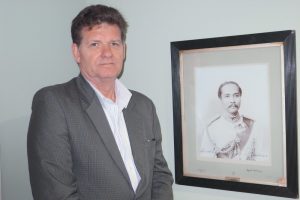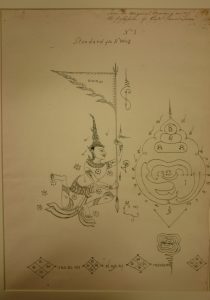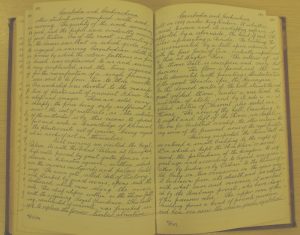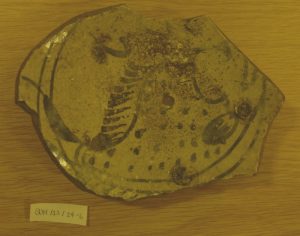Thailand and Other Collections’ Highlights
On Wednesday 29th May, we welcomed Dominic Faulder to the Society to lecture and launch his book, “Anand Panyarachun and the Making of Modern Thailand”. Dominic Faulder has been based in Bangkok since the early 1980s, working for news organisations and publications. During that time he has gained an informed insight into Thai politics and researched the career of Anand Panyarachun, who is regarded as a progressive figure, dedicating his political life to the betterment of his compatriots, improving global understanding, and the development of Thailand. Anand Panyarachun has also had a turbulent career and Faulder’s book includes Anand Panyarachun’s childhood in Bangkok during the Second World War, the derailment of his diplomatic career in 1976, his two unexpected tenures as an appointed prime minister, and his role in the drafting the ‘People’s Constitution’ of 1997. We were pleased to be able to hear more about this politician’s life from such an authoritative source.

Dominic Faulder’s lecture related to more current Thai political life. Our collections, as epitomised by the portrait of King Chulalongkorn, relate to earlier periods in Thailand’s history. We have a series of drawings dating to the 1820s and early 1830s of Thailand and Burma. These were drawn by Lt. Col. James Low and a Chinese or Thai artist called Boon Khan, and presented to the Society in 1835. Low belonged to the Madras Infantry but was put in civil charge of Province Wellesley in the Straits Settlements. The drawings in the Society’s possessions were meant to go with Low’s article on The History of Tennasserim published in the Journal of the Royal Asiatic Society in successive volumes between 1835 and 1839. Only a few were printed but the Society’s Collections contains 20 drawings.

We also have an extensive collection of archives, photographs, slides and books by Horace Geoffrey Quaritch Wales who spent a considerable time in Southeast Asia. In 1924 he entered the service of the Siamese government and from 1924-1928 acted as an adviser to King Rama VI and King Rama VII. He published Siamese State Ceremonies (1931), and Ancient Siamese Government and Administration (1934), this volume being translated into Thai in the same year. Quaritch Wales married, and with his wife, Dorothy, began extensive travel particularly in south and southeast Asia. During 1934-6 he served as field-director for the Greater India Research Committee, directing archaeological work on early Buddhist sites in Thailand. From 1937-1940 he and his wife undertook surveys and excavations in Malayasia, particularly in the Kedah region.
Our Quaritch Wales collections include much from both Thailand and the Kedah region of Malaysia. The catalogue of the archives is available on line, but we are still looking to complete the sorting of his photographs. So, if this is your area of interest, do get in touch as there may be a possible volunteering opportunity.


Our collections will be highlighted in the next lecture at the Society. On Thursday 6 June, at 6.30 pm, our Librarian, Edward Weech, will lecture on “Systems of religion and morality in the collections of the Royal Asiatic Society”. This is an excellent chance to hear how some of our Collections are being used as a focus for current research. Edward will examine selected treasures from the Society’s collections to identify approaches of British Orientalists to the study of religion. He will relate this to eighteenth-century Enlightenment and further philosophical development over the course of the nineteenth century. He will look to place the Society’s collections in the wider context of British interest in foreign cultures and traditions, and ideas about public morality and religious pluralism.
This is not the only lecture that Edward Weech is presenting about our Collections. This morning (Friday 31 May) he is speaking to some TECHNE PhD students about the use of archival material in research, illustrating his talk with, of course, our Collections. Then, in June, he travels to Hong Kong to present a Paper on his own PhD research into Thomas Manning, whose archive we also hold. It is exciting to see the ways in which our Collections are being used and it is gratifying to be able to spread the word concerning the possibilities of seeing them aid others’ research.
